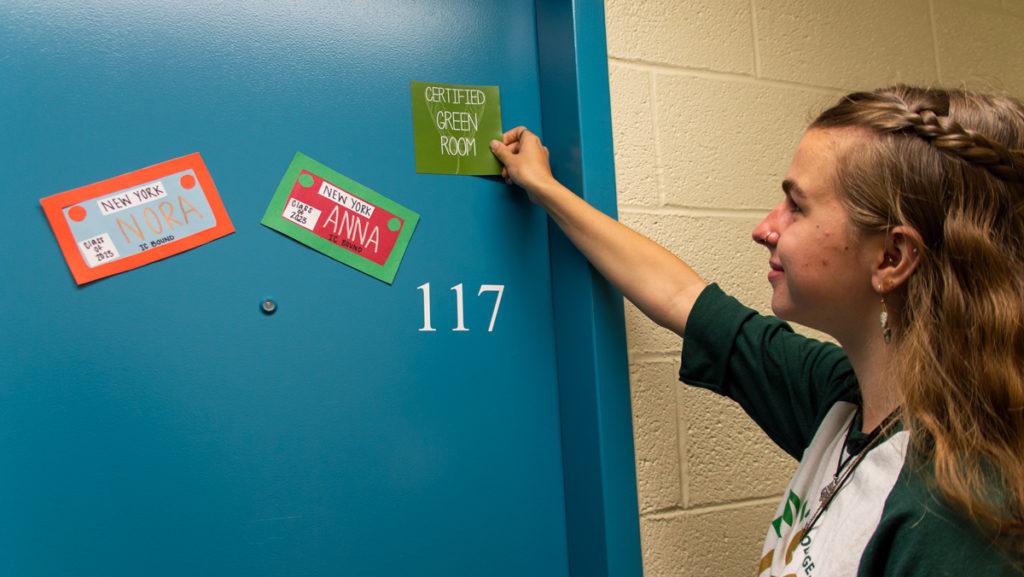The Ithaca College Eco–Reps will be rolling out the Green Room Certification program this semester in an effort to increase sustainability on an individual level on campus.
The program allows students to have their rooms evaluated based on how sustainable their lifestyles are. The certification program will be available to students living in the Upper and Lower Quads, East and West Towers, Emerson Hall and the Terrace Residence Halls, according to the request form available on the Eco–Reps website. The program is a partnership between the Office of Energy Management and Sustainability, the Eco–Reps and the Residence Hall Association Community Council Eco–Reps.
Students who sign up for the program will have Eco–Reps conduct walk-throughs of their rooms. Eco–Reps are students employed by the Office of Energy Management and Sustainability who promote sustainability initiatives on campus. The evaluators will check off items according to the Green Room Certification Checklist developed by the Eco–Reps. The checklist is divided into four categories — waste, energy, climate and lifestyle — and includes approximately 20 items. If students pass the walk–throughs, they will receive “Green Room Certified” magnets to place on their doors.
Some criteria to qualify for the program include not using single-use plastic products like water bottles, coffee cups or trash bags, using LED lights in lamps, using campus printers rather than a personal one, having a plant in the room and carpooling. Some items on the list will rely on self-identification, like eating a primarily plant-based diet and keeping showers under seven minutes long.
Rebecca Evans, campus sustainability coordinator in the Office of Energy Management and Sustainability, said via email that discussions about the program took place in summer 2018, and an official pitch was made by the Community Council Eco–Reps in Fall 2018. She said educational sustainability programs are important to have on college campuses because it reinforces the idea of individual responsibility for sustainability.
“[The program is] a way to acknowledge students that are highly engaged with campus sustainability or that are actively trying to reduce their impact on the planet,” Evans said via email. “We also hope that it will encourage other students to make more mindful decisions in how they live their lives on campus.”
Sophomore Emily Gronquist, an Eco–Rep who helped spearhead the program, said the program is important because it uses a peer-to-peer education system. She also said this initiative is an approachable way for students to increase sustainability. She said the program is a good educational starting point for teaching students about their impacts on sustainability.
“It shows that sustainability doesn’t have to be this scary thing where it’s like, ‘I have to completely live off the grid and do all this to make any change,’” she said. “Some of these things are so easy, and I think that it shows people that you can make these tiny changes and it makes a difference. You can feel good about doing something.”
The college is not the only college with a sustainability program focused on individual changes in dorm life. Colorado College, a liberal arts college located in Colorado, offers a two-level green room certification program that also has a checklist of waste, energy, water, involvement and technology. Another liberal arts college, Richmond University in Virginia, allows students to answer a survey online to get their room certified as green.
Jenny Pickett, assistant director for the Office of Residential Life, said she agrees that peer-to-peer education programs like this are beneficial to have on college campuses.
“I think it’s a great outreach and educational event,” she said. “I think … because you have a peer saying that, it feels less like an authority figure telling you what to do or that you’re in trouble, that it can be a more casual learning experience. I think there’s benefit in that.”








